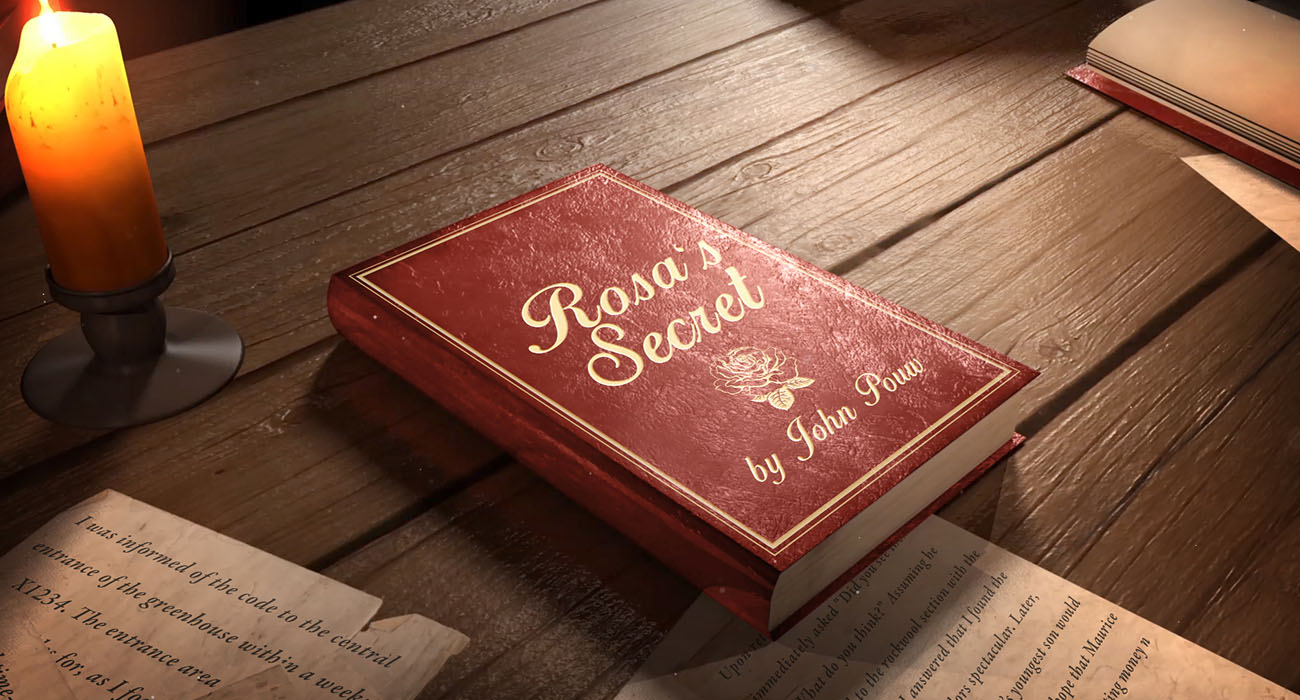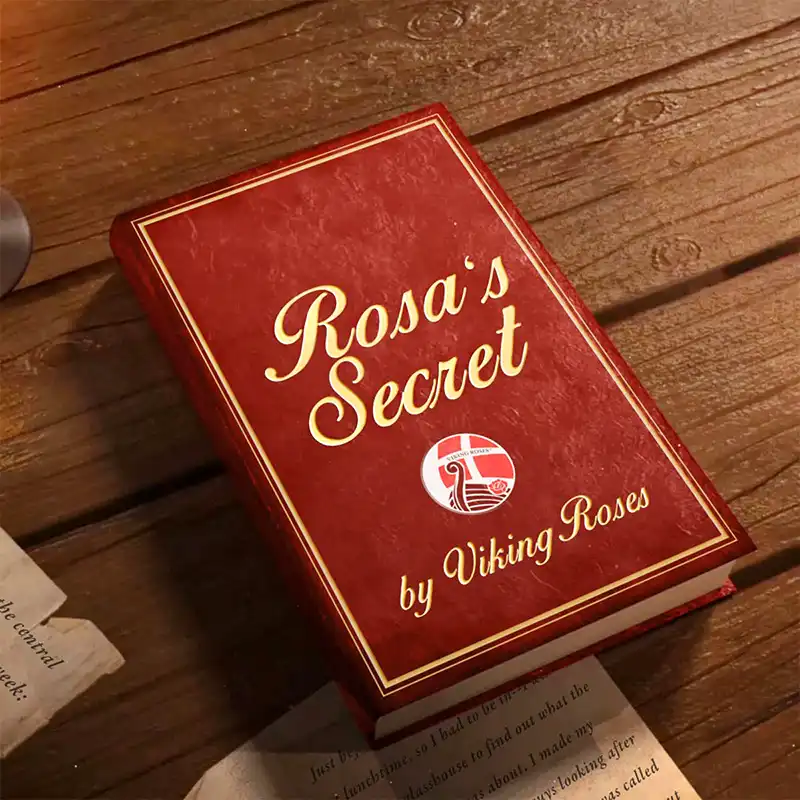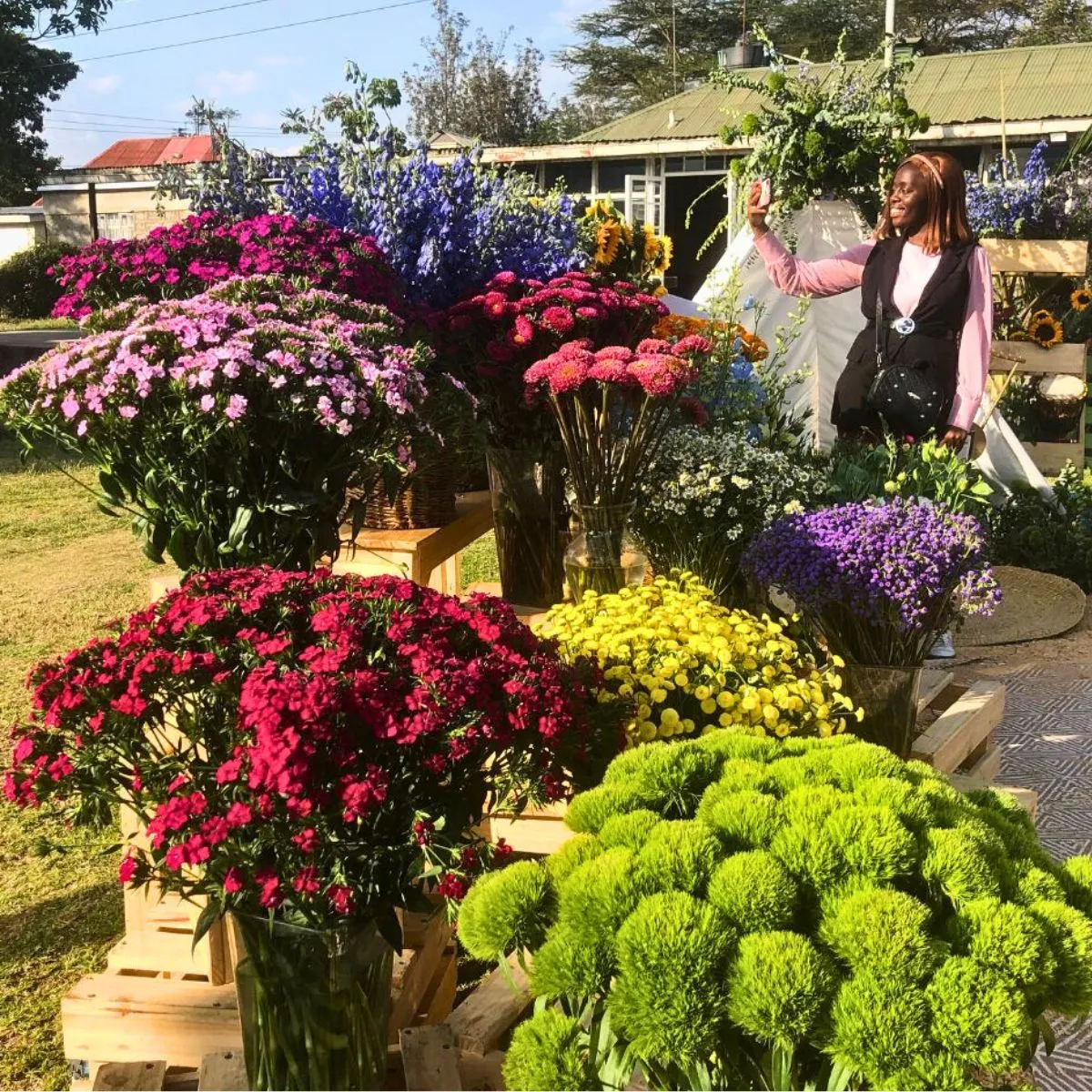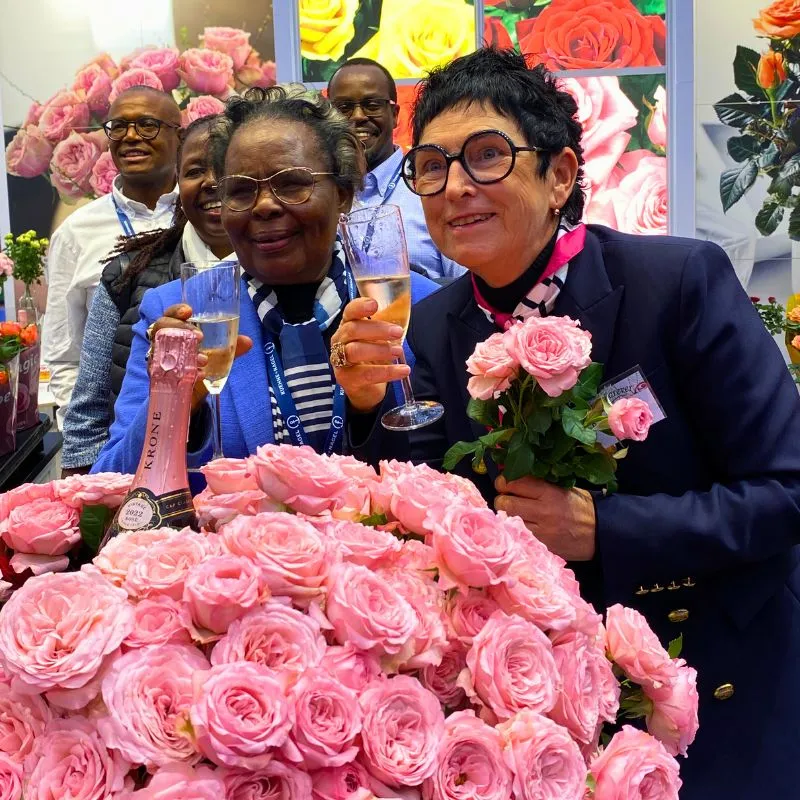The big Buick Estate Wagon approached us, nobody behind the steering wheel and an elderly man in the passenger seat. Maurice shrieked, Father Dré steered to the right and slammed the brakes. The Buick also pulled over, the elderly man, arm in a cast, 60-s glasses and worn dustcoat, stepped out and also the door at the driver’s side opened, a tiny woman stepping out, mid-sentence enthusiastically welcoming us to Springwood. “Good to see you again, Dré, and you two must be John and Maurice, now who’s who?” June Laver introduced her husband Keith, ridiculing his broken arm. “Fell out of a tree, yesterday. Now I have to do the driving. Get back in your car and follow me to the house.”
We obeyed. With a big smile, Dré explained that “Keith Laver must be one of the richest men in Canada, at one time owning all the land that became Mississauga, donating all his money to university and not spending anything on himself. They grow their own food and June loves to cook and bake. You’ll see.” Indeed, we found the table laid in anticipation of our arrival. All plates and glasses were decorated with miniature roses. The room and the house were spectacular, with a glass wall separating living room and swimming pool, looking out over garden and wood through the glass wall at the other side of the pool. “We had it built to our wishes,” Keith explained, watching me looking around. “You should come in the wintertime, when we ski straight from the house downhill. We actually had some wolves come to the house last winter.” I walked in the kitchen, where June was just filling bowls with steaming food. “Anything I can do, June?” “Sit down, relax, but you can help me with the dishes later on,” she replied cheekily.
And that was just lunch. Afterwards, Keith took us for a tour of the wooded premises in his old Jeep. Vegetable garden, all kinds of fruit trees and shrubs, a big pond with trout, flower beds with June’s favorite gladiolas, open-air beds with roses and, finally, greenhouses. Three separate houses, small, but state-of-the-art with heating, lamps, eb-and-flow tables, and a Mexican couple looking after the plants. In comparison, the set-ups of Von Bismarck, Rosen Vorbeck, Groupe Ferry or LAVAL were huge, and even Witte de Wit was quite large in comparison. Gradually I had learned that size was no guarantee for success, and neither were quantities of seeds or seedlings that breeders always bragged about.
Springwood Roses was already quite successful with miniature garden roses in Canada. Father Dré proudly announced that Witte de Wit, agent for Europe, was now introducing Keith’s pot roses as ‘Festival’. ‘Lavgold’ and ‘Lavquest’, commercially became Yellow and Pink Festival®, with the first royalties coming in from Denmark. The name had been my proposal for the varieties with big flowers and warm colors. Longevity was not so good, but plant them outside and they will continue to grow. Keith was extremely proud, didn’t care too much about the royalties and would inform the people of Jackson and Perkins of the news and push them to introduce them in the U.S. He had a batch of seedlings flowering and Dré and Maurice made their selections for testing in Benthuizen. Keith would send cuttings in the spring.
“June, these guys have just launched my first pot miniatures in Europe, as the Festival series.” His reward was a big peck on the cheek. “Well done, honey. I have always believed in you.”
Keith, Dré and Maurice retreated to the living room for aperitifs, I helped peel the potatoes for June in the huge kitchen. She was thrilled that I had spent a year in Toronto to study a Canadian author and wanted to see photographs of my little boy. I nearly felt embarrassed when June summarized the story of their family. They met on a blind date at Ontario Agricultural College in Guelph, proud parents of a son and daughter, grandparents of Daniel, when their daughter died in a car crash, her husband turned alcoholic, and Keith and June took in Daniel. They had then given Springwood Consultants Ltd to their son, who instantly sold the business, emigrated to New Zealand, never to be heard from. Keith then started from scratch again. Good grief. I wondered if Dré knew this and, if so, why he hadn’t told.
On top of all this, Keith’s health was a constant concern for her, although he himself continued to act as if he were 30 years younger, just recovered from a broken leg after falling down a ladder and then falling down a tree and breaking his arm. She could laugh about that. The bigger concern were the blood clots. He had already had two strokes. As a last resort, he was now taking some sort of rat poison to make his blood thinner, and he had a little sieve put in his aorta to catch possible clots form causing a cerebral infarction. It was truly amazing to see the joy between them and the love for their grandson. Surprisingly, they were not over-protective and not spoiling their sole remaining purpose in life, now a teenager, most of the time off with friends, but never drinking and driving.
We set the table and June fetched the others. “Dinner’s ready and, do you know Keith, John has lived in Toronto for a year to research Matt Cohen!” Soon we entered the healthy journey through June’s home cooking and own recipes, decorated with flowers, all the way through ice cream and pie, bringing back the little boy in Dré. The Lavers had tried making wine, but so far were not happy with the result. They made lovely cider, though.
No coffee for Dré who went to bed promptly at 9 p.m. Dré knew his bedroom in the house and miraculously adjusted his bodily clock to different time zones, no problems with jet lag. Breakfast at 8 a.m., lunch at noon, dinner at 6 p.m. and to bed at 9 p.m.
June insisted on doing the dishes and Maurice, Keith and I having our coffee in the living. Sitting in his armchair, Keith told his professional life story after I asked how he ended up as a rose hybridizer. “My mother grew roses on our family fruit farm and, almost naturally, I studied horticulture and biology at what today is the University of Guelph and have always kept close contacts.” Later, I learned that Keith was the financer of one of the agricultural chairs, funded the ‘Keith and June Laver Scholarships in Horticulture’ and was on the Board of Governors there. “At the start of World War II, just after I married June, I was a camp commander for Japanese Canadians in B.C. After the war I was a bush pilot for a while, occasionally finding myself in the treetops. I then worked for the ministry of agriculture, wrote the pesticide laws for Canada, and started a garden center in Cooksville in 1950. Here June and I sold lots of roses and I started hybridizing. We moved to Caledon, had the house and the greenhouses built in 1985.”
Maurice explained the changes at Witte de Wit: the company was sold to their biggest Dutch customer Anton’s Potrozen, Dré and Piet would retire in two years, and he would be the new director.
Daniel was staying with friends, so I was given his room for the night. Jet-lagged, I was wide awake, staring at the posters of Wayne Gretsky, Bryan Adams and Roxette, impressed with the unique personalities in the magical world of roses.
The next day, with Dré naturally behind the wheel, Keith in the passenger seat and Maurice and I in the back, we visited some pot rose growers in the area. This area is the Dutch horticultural colony in the Hamilton-Niagara area. Dutch settlers have a long history in Canada, from engaging in the fur trade along the Hudson River in the early 17th century, through the nearly 2,000 war brides at the end of World War II, to the last major wave in the 1950s, totaling some 150,000 Dutch immigrants in the 1960s.
Len Mostert’s father Bram emigrated in 1953, worked for Poeluk Greenhouses and after 10 years had the opportunity to take over the pot plant growing facility. Five years ago, with his son Len at the controls, the facility modernized in a big, ‘Dutch’ way with fog installation, lamps, eb-and-flow production on moving tables of primarily mums and roses. Len had grown Witte de Wit’s Rosaminis and Minimos but had recently changed to Von Scholten’s Fanfare® varieties, superior in bud count and longevity. Since Mogens Bothildsen only worked on exclusivity basis, Mostert was also going to stop with the three Springwood varieties.
While Len was touring Keith, Dré and Maurice through the roses, I leisurely wandered off to his propagation unit, to see what was behind the plastic screens. There I found rows and rows of tables with small pot-chrysanthemums. I wrote down what I saw on the labels: ‘Pink Igloo’, ‘Red Igloo’, ‘Chrystal Igloo’ and a few more ‘Igloos’. During CIOPORA meetings I also met with breeders of other crops, also struggling with pirates: illegal propagation, not paying royalties. We always promised to keep an eye open, but promises, promises …
During our 20-minute drive south on Lake Ontario, from Burlington to Grimsby, Keith told us that he had struggled with Len for some three years now, admiring his entrepreneurship and green fingers, but always suspecting he reported less than he produced. He asked Dré about the Fanfares. He knew Bothildsen’s reputation, but what was so special about his new line of pot roses? Dré repeated what he had learned from Ove Nielsen during our previous visit to Denmark. “Bothildsen is a good marketeer. His Fanfares have more buds than our or your varieties and by convincing buyers with a Norwegian test that nobody ever saw that his varieties have much better longevity, these then ask producers for them. Then Bothildsen makes these producers sign exclusivity contracts.”
In Grimsby, there were multiple signs to different ‘Eastbrook’ companies, among which Eastbrook Greenhouses Ltd, Eastbrook Operating Systems Ltd, Eastbrook Group Ltd, Eastbrook Floral Ltd and Eastbrook Greenhouses, our destination. Dré had been here before and explained that Wim Vreugdenhil and his wife Koosje had emigrated in the fifties, worked hard, had some ten children (as good Catholics), started his own farm with the goal to set up businesses for each of his children. Judging from the signs, he did well.
“Good people,” Keith added, “I never have to ask for production figures or count plants. It’s always more than I would estimate.” He confessed that he had approached Janet Vreugdenhil to work for him and, eventually, take over the breeding. Too bad for Keith, she was too committed to the family. We met Janet and her brother Chuck in the office. Janet took care of the ‘paperwork’ and Chuck of the plant production, both indoors and outdoors. I climbed in his truck and Dré followed for a tour. Chuck showed us an outdoor crop of Red Rosamini®, a variety I had not seen before. Eastbrook were the only licensees and able to produce a very nice plant in 10 inch pots. Every year Janet would report the quantities sold to Jackson and Perkins, who would deduct their 50% share and transfer the rest to Witte de Wit. “Haven’t seen them for a few years now. Don’t know anything about pot roses, only about garden roses. Besides, they’re bureaucrats, no growers,” Chuck commented. We also saw their Witte de Wit trial varieties, neatly arranged and coded.
Back in the office, Wim Vreugdenhil himself had also arrived. Inviting us for a coffee in Dutch. Janet also managed to speak the language. Chuck understood. Wim spoke with authority, had the size to support this. He was the patriarch, asking about Dré’s family, horticulture in Holland (though as a subscriber to the ‘Vakblad voor de Bloemisterij’, which he received a week later, he was well informed) and telling about his current project, building a new office for Eastbrook Operating Systems, fit for his invalid son. He politely declined Keith’s offer for dinner that night. “Fridays are Vreugdenhil family days, the girls cook, and we have dinner together.”
Keith had insisted on going out for dinner that night and had booked a table for five at The Vista by Chef Denis, ‘specializing in traditional Canadian cuisine with a delicious French twist’. Indeed, the menu looked adventurous, Dré looked grumpy, afraid of the unknown. In the end, he opted for the salmon, but only after he had Keith ask the chef to come to our table to swear the salmon was boneless. The outcome was shaming for the former camp commander and bush pilot and his wife and disgusting for Maurice and me when Dré took out his false teeth with partly chewed food to pick out the bones. Everybody but Dré apologized.
The next morning, at Pearson International Airport, we were so happy to part ways: Dré returned to Amsterdam, Maurice and I embarked flight AC791 to Los Angeles for the second leg of our journey. Main purpose: negotiate a new bilateral cut rose contract with Jackson and Perkins and terminate the existing unilateral agreement with Devor Nurseries. Secondary purpose: attend a Roses Inc. meeting and exhibition.
Devor was the agent for Witte de Wit’s cut roses in the U.S. In Holland, they were represented by Hendrik Jacobszoon. J&P were already the Witte de Wit pot rose agent for North America and wanted to extend this with cut roses and include Latin America. There had already been a meeting with Gary Bergdahl and the breeder Dr. Keith Bartram at the time of the Aalsmeer flower show, followed by fax exchanges. Latin America was to be left out for the time being, so that Witte de Wit could learn about this market first. J&P’s agent for Holland also was Jacobszoon. They were keen on leaving because they were one of Jacobszoon’s many agencies and were under the impression their varieties were overlooked. Witte de Wit was looking for agencies to fill the gap in the breeding. It was expected that Seedy would take a few years to come up with his first varieties. With the Dutch market much bigger than the American, concentrated in the Carpenteria area, the agreement was more attractive for Witte de Wit. Problem: changing agencies was not accepted in the gentleman’s world of rose breeding.
Landed in L.A., we picked up the rental car to venture out onto a 6-lane highway (each direction), for the first time in our lives. Maurice had to read the map, I accustomed myself to the easy-going traffic. We easily found our way to J&P’s breeding facility in Somis with offices and laboratory outsizing the breeding and trial houses. For sure, it was hot, and it was hard to assess varieties in those conditions. Nevertheless, Maurice and I marked quite a few codes. You never know what a change in climate can do. Dr. Keith and Gary both admitted they stuck to the office most of the time at this time of the year. When we returned to the offices, we were joined by Robert de Biest, CEO of Bear Creek Gardens and of Dutch origin. J&P were part of Bear Creek, that also ran a postal order business and a series of garden centers.
The last draft of the proposed contract had been approved of by the Bear Creek lawyers, so that, with the condition that we would terminate the Devor agreement and with the faxed approval of Big Anton, I could sign my first contract. Dr. Keith would send material of the selected varieties after the Roses Inc. show, where they had a stand and Witte de Wit would display some varieties in the general area, for which we rented some table space. Hopefully the flowers had arrived from Holland. Having no new agent at the time of shipping and not wanting to involve Devor, we had dealt with the organizers directly.
That was easy and followed by an early dinner. The next morning, we took a propeller flight to Monterey, hired another car to drive to Devor, where Stan Gidley King was waiting for us. Having had no sales of Witte de Wit varieties in the last few years and having not received any on trial for over a year, Stan was not surprised by our news. Following the contract, Devor would continue to keep the sales rights for the existing commercial varieties and varieties received on trial. Amounting to zilch.
Relieved by Stan’s friendliness, we went through the small selection area to show our respect and left much earlier than anticipated. We had booked rooms in The Double Tree, Monterey and arrived in good time. After walking round Fisherman’s Wharf, Hooters seemed a nice place for some pre-dinner drinks. Only after we sat ourselves at a table did we notice the bar’s distinctive signature. Maurice seemed to have a good time and since he had to approve of all expenses, I was fine, but had to make sure to collect the receipts. That night it turned out the Hooter girls had only made a first impression and I was thinking about the events of the past few days, especially the pot rose side of the business. Canada had three or four relatively big producers, but the U.S. had some five more, but bigger. The problem had been the quarantine. Imported new varieties had to be planted in a secure, controlled government area and could not be touched for two? Growing cycles. Since they were grown as garden roses, this meant two years, if they survived, and then you had to start from scratch. Keith Laver’s varieties could be imported without quarantine, since they were grown in Canada and the U.S. had no restrictions for Canadian product. Suppose we had our varieties grown in Canada and then exported to the U.S.? Would they be considered as Canadian? Something to find out.
More breeders showed up at the Roses Inc. meeting and were showing varieties in the booths of J&P and Devor, agents for most, or their own, in case of Groupe Ferry and Lebrun. Surprised, I noticed pot roses in the stand of Kinsinger Brothers. No other pot rose producers were displaying. I knew Vincenzo Crispi would be there, and his father had asked me to take him to the meeting, introduce him to other breeders and discuss marketing and breeders’ rights. I had met him for breakfast and entertained him for the rest of the day, at the meeting—very similar to a CIOPORA meeting: legal talk and absence of fireworks—and at the exhibition. I suddenly didn’t feel a rookie anymore and was back in my teaching role. Apollo®, Total Success® and Leonardo® had arrived in one piece and were looking good but outsized by Ecuadorian roses in most stands. American cut rose growers were not displaying, and the visitors were mainly buyers, both wholesale and retail. Peter Daimler had pushed me to put in Total Success®, which he saw as the perfect supermarket rose, especially with the color range in the different mutations. If retailers were seriously interested, he would plant hectares. He himself was not there, but several of his Emerald staff from Miami were.
It turned out that the flowers were just there for decorative reasons and the buyers were having a good time between themselves, beer, and whiskey. The breeders and their agents admired varieties, especially their own, and, with a preference for wine, had their own chit chat. This episode of the travelling flower circus featured French, Spanish, Italian, American and Australian colleagues. The Germans and other Dutch were absent.
Time to return to base after a lot of miles in just over a week. Flying from Monterey to San Francisco, change in Minneapolis, we landed at Schiphol Airport on Saturday, some 12 hours later.
Walking through the breeding and selection houses the next Monday, I noticed that they were collecting the hips, with Seedy shouting “Fucking Chinese, this time we will get you!” Harry asked about the trip. “A lot of travelling, but quite relaxed. Prepare to receive material from J&P. Keith Laver will send in the spring. Do you know that he wrote the Canadian pesticides legislation and was a bush pilot?” Harry didn’t. “Do we have plants of Red Rosamini® here?” Actually, we did. There were some plants in the field in the back, but since no pesticides were used there, the plants had lost all foliage and flowers at this time of the year. “Was Maurice on a different trip?”, Harry asked, with a big smile and, seeing my puzzled expression, added “He told it was hard and stressful.”







